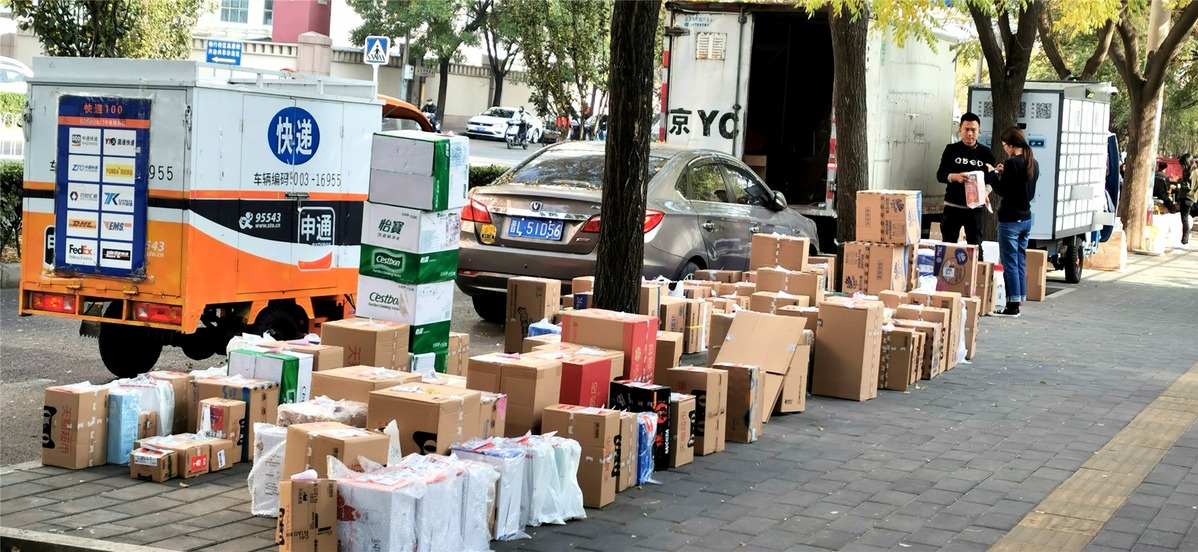Couriers' move to reduce 11/11 package trash a waste
By Li Hongyang | chinadaily.com.cn | Updated: 2019-11-21 17:00

Express companies' efforts to reduce packaging waste seem to have failed their expectations to realize a greener Double Eleven shopping spree.
During this year's Singles Day shopping extravaganza, the Tmall e-commerce site received 1.3 billion orders in one day, up 30 percent year-on-year. The orders generated an estimated 26 billion cartons.
Accused of generating too much waste, courier companies such as Cainiao, Yunda and Sto joined hands and arranged for facilities at a minimum of 35,000 delivery stations for consumers to leave cartons there for recycling.
However, many people said they had not heard of such facilities for recycling, the Beijing News reported.
Pu Yanjuan, a car seller from Kunming of Yunnan province, said she never saw any such facility in her neighborhood. "We don't have a delivery station here and couriers would usually bring goods directly to your home. I usually throw the packages into a trash bin."
A manager of an express company was quoted by Beijing News as saying that it is difficult for a community delivery station to recycle packages.
"Only a few people would like to unpack their bags right at the station. They think it is trouble to open the tightly wrapped parcels and would rather take delivery back home directly. It is unreasonable to require them to give cartons back to the station," he said.
Courier companies are also experimenting with other ways to reduce packaging waste.
Big data and artificial intelligence algorithms are used to help calculate the minimum weight of packaging a parcel needs, reducing 15 percent of the use of a packaging on average, according to Cainiao, the logistics company affiliate of Alibaba Group.
Retailers tend to use unnecessarily large cartons or plastic bags for packages to prevent damaging goods during delivery. Pu said she bought a pan and a little spoon at a shop on Taobao during the shopping spree, but the goods arrived in separate cartons.
"There's no need for the retailer to wrap the spoon up in an extra box. There were also several plastic buffers inside the pan. It's a waste of resources," she said.
























